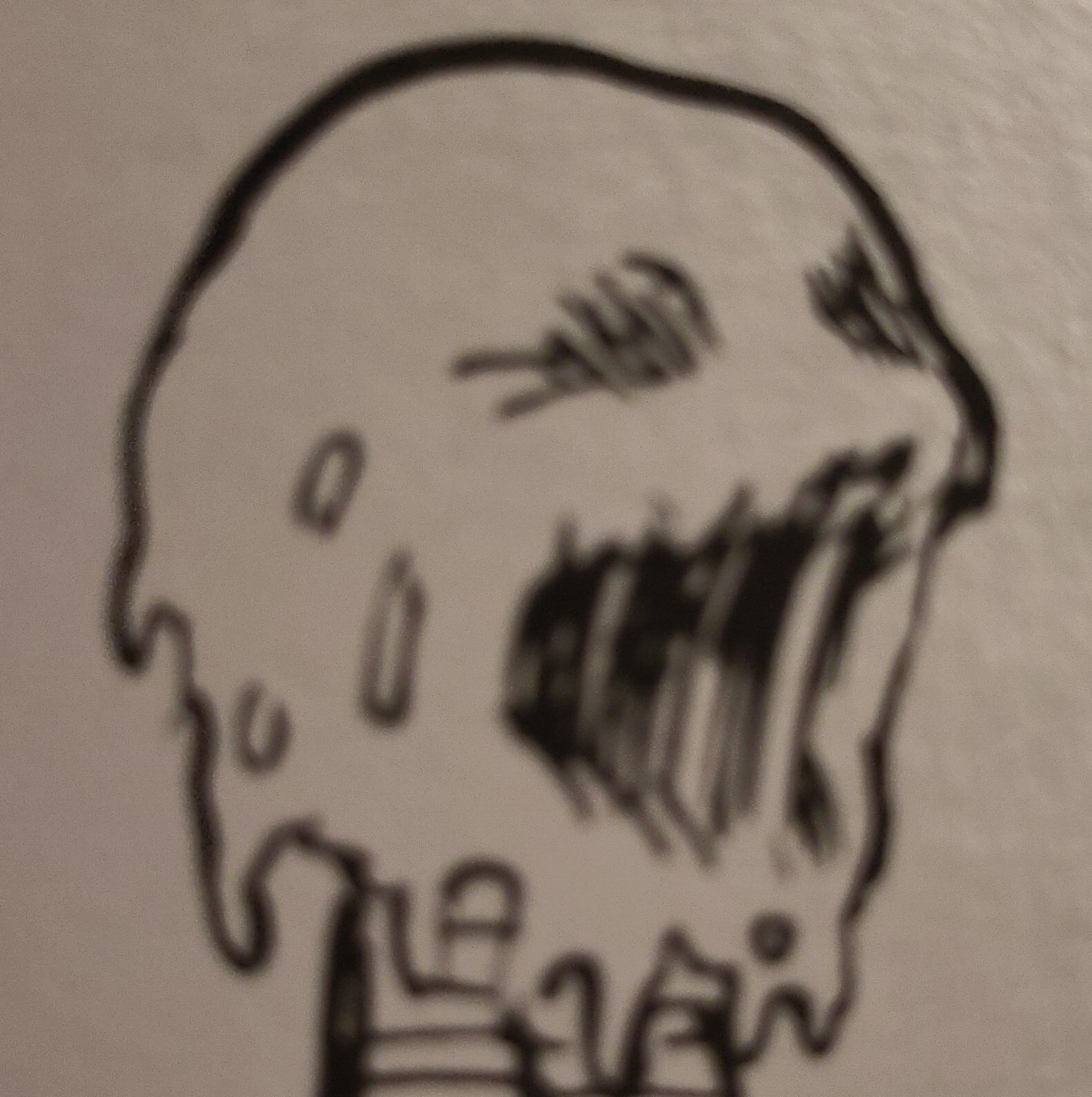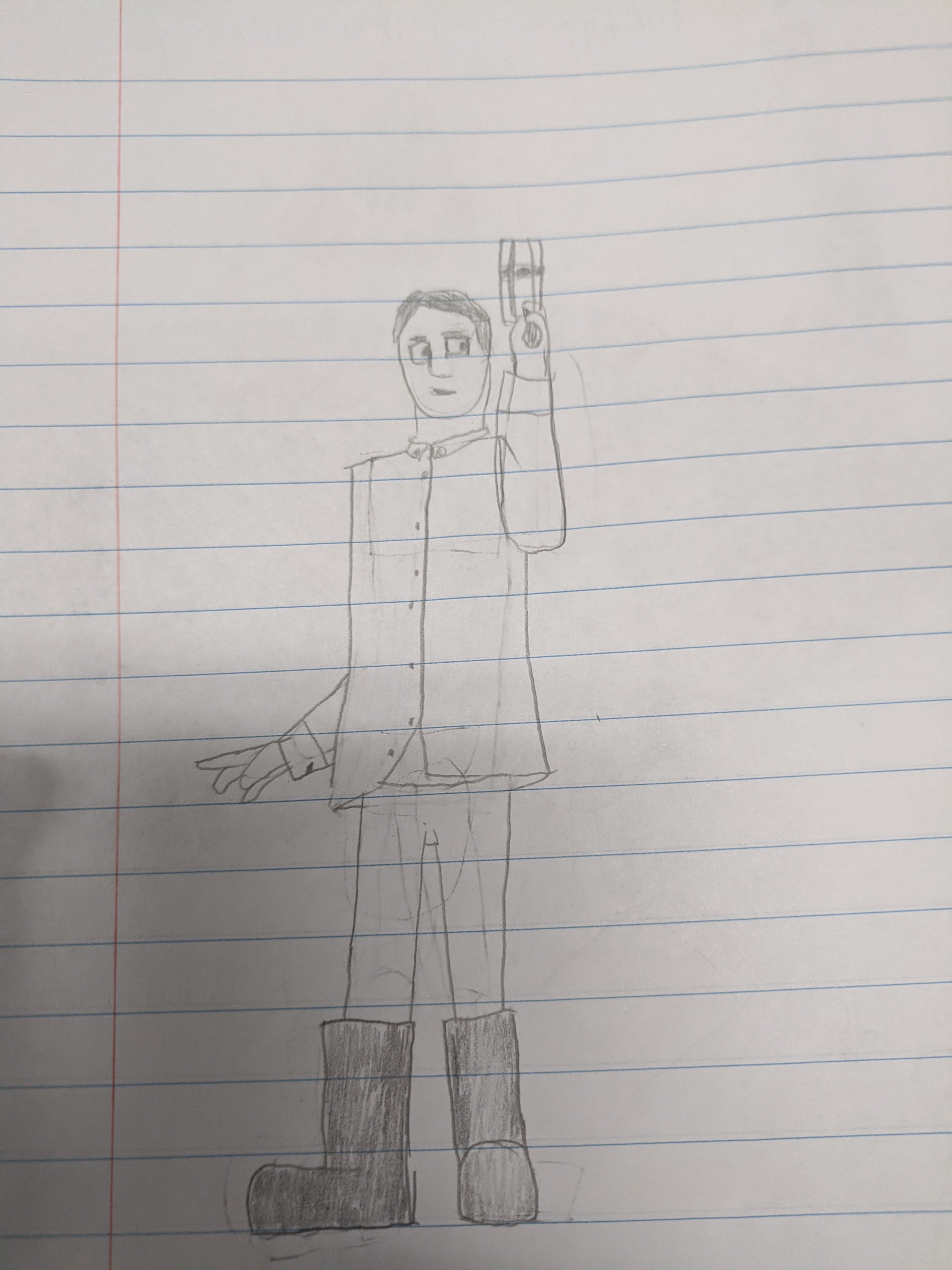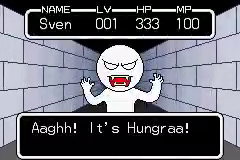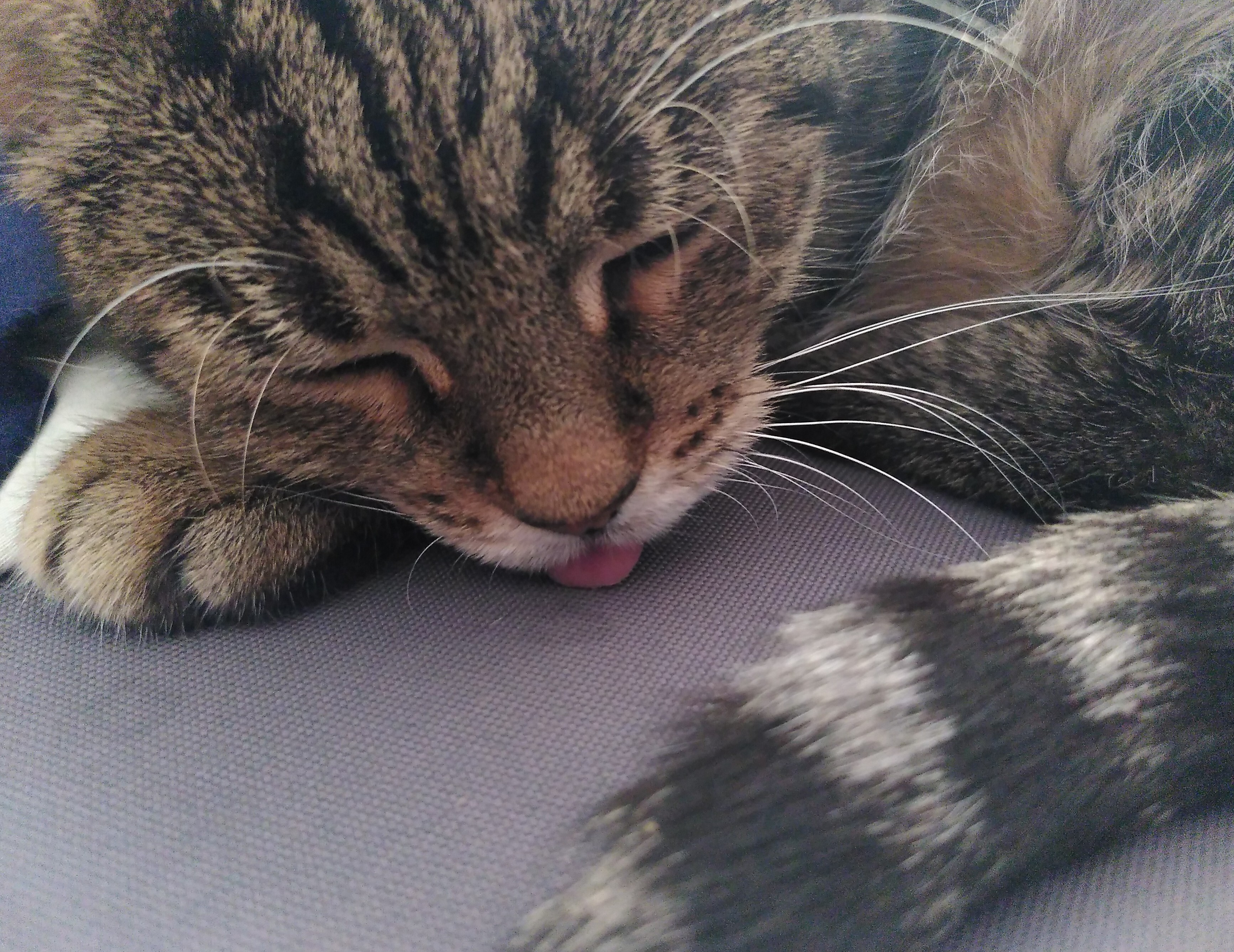In Finnish we have “kissanristiäiset” (literally means a cat’s christening), which means some trivial and meaningless celebration/event.
There’s a bunch of weird ones in Portuguese.
- “Caroço de manga não é sabonete” Do you think that mango seed is soap? = “this is an absurd proposal/situation/etc.”
- “Pobre só sobe na vida quando o barraco explode” Poor people only ascend on life when the [shit]shack explodes. = “don’t expect social ascension”
- “Enquanto vem com o milho, já comi a polenta.” While you’re bringing the corn, I already ate the polenta. = “I’ve already handled this, you’re too late.”
- “um polaco de cada colônia” a Pole from each settlement = a bunch of randomly picked people or items. I don’t think that people use this too much outside Paraná.
- “farinha do mesmo saco” flour from the same bag = extremely similar in some aspects that matter (and usually negative ones)
- “comer o pão que o diabo amassou” to eat the bread kneaded by the devil = to go through rough times
- “Vai chupar prego até virar tachinha!” Go suck an [iron] nail until it becomes a thumbtack! = somewhat polite way to tell someone to fuck off
- “Vai ver se estou na esquina.” *Go check if I’m around the corner." = also a way to tell people to fuck off
- “anta quadrada” squared tapir = “anta” tapir is used to call someone stupid, so anta quadrada is stupid to the power of two.
- “anta cúbica” cubed tapir = because some people do some really, really stupid shit.
- “mais louco que o Requião de pedalinho” crazier than Requião on a paddle boat = Requião is a politician here in Paraná known for his crazy antics. The phrase highlights that something is completely fucking crazy. Clearly local.
- “teu cu” your arse[hole] = definitively, clearly, and blatantly “no”.
“While you’re bringing corn, I already ate the polenta” is brutal
Only a few of these - “comer o pão que o diabo amassou”, “vai ver se estou na esquina” - are used in Portugal, so they’re mostly used in Brasil.
The language hasn’t drifted all that much in between both countries during the last couple of hundred years but expressions seem to tend to be the first to drift away.
It also seems to me that expressions drift away faster than other aspects of the language. Perhaps due to their casual nature, or due to context. And they’re often extremely local, too - for example, I’ve heard nordestinos using “sacrifício de mundo” (lit. world sacrifice) to refer to difficult things, while folks here in Paraná practically never do it. While saying that something is “uma vaca no milharal” (a cow in the corn farm - wrecking everything with no regards or reason) usually outs the person as from a rural background.
For speakers from Portugal there’s an additional weird expression: pila is used here in Paraná as a completely innocent word for money, e.g. “dois pila” two bucks. (In PT I believe that it’s used as a slang for dick.)
Alternative for “vai ver se estou na esquina” is “vai catar coquinho” (go gather little coconuts), I guess because it’s a silly, futile task?
Haven’t seen some of these before. Ones I particularly like are:
- Tirar o cavalo da chuva: take your horse away from the rain = give up on something
- Lavar as mãos: wash (the) hands = do not involve yourself in something
Wash your hands of [something] is also in American English, although I think more typically used when you were already involved in something then removed yourself from the situation
Another Bible reference; this one refers to Roman governor Pontius Pilate washing his hands to indicate being done with the issue of Jesus’s execution.
Oh right, I hadn’t thought about it!
I always said it as while you’re bringing the wheat I already ate the bread. But in my family we exaggerated it for effect: while you’re buying the wheat seed, I already shat the bread 😂
while you’re buying the wheat seed, I already shat the bread
Like, “enquanto você tá comprando o trigo, já caguei o pão”? That’s hilarious!
In Australia people who mean business say “I’m not here to fuck spiders.” I think that’s just wonderful.
In America we express suffering beyond words by saying we’re “living the dream”. And the Brits think we have an irony deficiency.
In France we’re not here to fuck flies
We don’t mind others’ onions
When someone is about to get late somewhere, we say « Tu vas te faire appeler Arthur » (literally « You’re gonna be called Arthur »)
This expression came during the German occupation, when soldiers would shout « Acht Uhr » (« eight hour ») to people during curfew. It sounds like « Arthur » in French.
Last one. « Faire le Jacques » (« acting like Jack ») means « playing dumb »
TIL about the origin of « Tu vas te faire appeler Arthur »
That last one reminds me of something I heard on the Mighty Boosh. Vince called someone a “Jack of Clubs” for hitting him
Ok next alt account I make is going to be named fly fucker
You mean sarcasm
-a Brit
Yeah, right. They meant sarcasm.
Exactly, thanks
Idk the spiders looking are looking mighty fine
Shut up :)
Aussie subtleties of the c-word.
-
“Silly Cunt” = funny person (endearing)
-
“Stupid Cunt” = complete idiot (serious)
-
“Dumb Cunt” = a good mate acting stupid (jovial)
-
“This Cunt” = referring to a good mate who’s done/said something uniquely odd (jovial)
-
“Acting like a Cunt” = acting terribly (serious)
-
“Don’t be a Cunt” = stop acting terribly (serious)
-
“Bunch of Cunts” = all your good mates (endearing)
-
“Good Cunt” = the best compliment you can receive (endearing)
-
“Dog Cunt” = the worst insult you can receive (get ready to fight)
-
“Shit Cunt” = insult (serious)
-
“Bit of a Cunt” = insult (jovial)
You can put mad Infront of all the cunts that don’t have adjectives already to make them even more extreme.
“This mad cunt” for when your mate’s done something really out there while “mad dog cunt” is real fucking bad for example
-
Czech has a lot of them!
Dělá z komára velblouda.
He’s making a camel out of a mosquito.
= He’s making it seem like a bigger problem than it is.Nemaluj čerta na zeď.
Don’t draw an imp on the wall.
= Don’t be pessimistic. Don’t assume the most catastrophic scenario.Jsem tam pečený vařený.
I’m there baked cooked.
= I go there a lot.Dala mi košem.
She hit me with a basket.
= She dumped me, or rejected my (mostly romantic) offer or advances.Dělá jako by se nechumelilo.
He’s pretending like it’s not heavily snowing.
= He’s pretending like something doesn’t concern him. He’s nonchalant about a serious situation.Kápni božskou!
Drip the divine! (Object implied. Probably “the divine truth”)
= Tell the truth. Spill it.Láme to přes koleno.
He’s breaking it over his knee.
= He’s forcing it.Natáhnout bačkory / brka, zaklepat bačkorama
To stretch (one’s) slippers / quills, to tap with (one’s) slippers
= To die. To kick the bucket.Padli jsme si do oka.
We fell into each other’s eye.
= We hit it off.Rozumí tomu jako koza petrželi.
He understands it like a goat understands parsley.
= He doesn’t understand it.Přišel jsem s křížkem po funuse.
I came with a little cross after the funeral.
= I came too late.Házím perly sviním.
I’m throwing pearls to swines.
= I’m doing good work or acts of kindness that go underappreciated.And I could go on :)
This is fascinating!
I’m also curious what causes idioms to be shared across languages, like “pearls before swine” (presumably this is shared because of the biblical verse, Matt 7:6)
I am absolutely going to use “he’s pretending like it’s not heavily snowing” from now on. Thank you for sharing all of these!
I’m glad so many people enjoyed my comment! Czech is a colorful language 😊
I could hear someone with a very (US) Georgian accent saying “He understands that like a goat understands parsley”.
“I don’t know where it comes from, but it’s tasty.” – the goat
“Drip the divine”
I love that Czech has a phrase for “spill the tea” but way cooler
Like pearls to swine is a very seldom used idiom in English too, used very rarely and often in archaic/medievel/fantasy settings. Very interesting 2 languages have a shared idiom so neatly translated.
It’s from the Bible.
“Give not that which is holy unto the dogs, neither cast ye your pearls before swine, lest they trample them under their feet, and turn again and rend you.” – Matthew 7:6
We fell into each other’s eye, sounds so sweet, romantic even. I might use that haha
In Dutch we have one similar to dělá z komára velblouda, we say “van een mug een olifant maken” (making a mosquito out for an elephant), it means the same!
Also one similar to přišel jsem s křížkem po funuse; “mosterd na de maaltijd” (mustard after the meal) means something mentioned or brought too late, when it was no longer necessary.
I wonder how many languages have sayings like this.
In English, we have “making a mountain out of a molehill”.
Ah, I’ve never even heard of that one in English!
That’s interesting!
Here are some useful Australian phrases:
- Flat out like a lizard drinking (working hard)
- we’re not here to fuck spiders (you’re wasting time, get on with the work)
- 40¢ short of a shout (not quite right in the head)
- How’d you be? (Are you well?)
- Living the dream (I am well, thank you)
- See you when I’m looking at you (goodbye)
I hate that your spiders are big enough to fuck
At least they’re not big enough to fuck you.
Lol that’s a good perspective!
“Living the dream” is also in the US but it’s usually more sarcastic like “Just another shitty day at this job, just living the dream!”
Yes, to me , also in the US, “living the dream” is exclusively very sarcastic and means something like “is this really all there is to life.” People also use “another day in paradise.” Means the same thing.
I want to tell everyone that we aren’t here to fuck spiders. This is my new anthem.
The more work appropriate version of this is “im not here to put boots on caterpillars”
Speaking of which, it reminds me of the curse “May your wife give birth to a centipede so that you have to spend the rest of your life working to buy shoes for it”.
Danish is full of idioms. Some people can have entire conversations using only idioms.
Some of the peculiar ones with animals:
“There’s no cow on the ice” = it’s not urgent.
"The goat has been shaved " = the job is complete.
"A dog in a game of bowling " = someone that doesn’t fit in.
“The dog is buried there” = the problem is found there.
Wow, Danes don’t like dogs huh?
I would think they would think dogs were…great
I’ll see myself out
Ruh roh
“The dog is buried there” = the problem is found there.
We’ve got the same in Germany. Probably carried over because we’re neighbours.
First thing that came to my mind was “Da wird doch der Hund in der Pfanne verrückt!” - “That makes the dog in the pan go mad!” You basically say it when you’re angry about something. Usually as part of a string of expletives as you charge up a long furious rant.
And even better: we only use the ice-cow as a thing of the past. “Kuh vom Eis” (cow off the ice) in the sense of an urgent situation has been resolved.
Ice dwelling bovines seem to have been a real problem.
“食西北風” (Cantonese, “eat north-west wind”) or “喝西北風” (Mandarin, “drink north-west wind”). It originally means having no food or drink, in other words, starving.
The meaning of this phrase is further extended to “running out of business”.
This is also partially where my username came from.
One of my favorite examples in (American) English has to be “There’s more than one way to skin a cat”; meaning there are multiple viable strategies for the task or problem at hand.
I never really appreciated how morbid it is until I saw the shocked face of a fluent but non-native english speaking colleague after using it in a meeting.
I almost got punched in a bar once for saying that a non-native English speaker was grinning like an idiot. Didn’t occur to me he wouldn’t understand the subtext on that one.
(For y’all ESL folks, it’s meant to be an endearing phrase indicating a joy so strong that you can’t stop yourself from smiling.)
“Konstit on monet, sano mummo kun kissalla pöytää pyyhki.”
It’s basically the same idea, and it even involves a cat. However, in this case, a grandmother is wiping the table with a cat, and says “konstit on monet”. Crudely translated as “ways (of getting stuff done) are numerous.“
Realistically though, I’m pretty sure the cat would not appreciate this method. Come to think of it, you probably wouldn’t want to do this with any animal, least of all with one that is famous for having “murder mittens”.
Similar to the German “All paths lead to Rome”.
When I was sticking my oar in too much on something he was doing, my Dad used to say “who’s skinning this cat, you or me?”
(American) English ones that come to mind:
- it’s raining cats and dogs (it’s pouring rain)
- I really shit the bed on this one (I fucked up really bad -not sure how widespread this is)
- a turd in the punch bowl (someone is singlehandedly ruining something, usually an event)
- don’t blow smoke up my ass (be honest with me)
- a walk in the park (pleasant/easy task)
don’t blow smoke up my ass (be honest with me)
alternative form: don’t piss on my leg and tell me it’s raining
“Someone screwed the pooch” - Someone made a big mistake, same as the “shit the bed” idiom.
Both are also common in Canada. Edit, actually every one of the parent’s idioms are common in Canada to varying degrees.
“Raiining cats and dogs” is not of American origin. The precise origin is unknown, but the first recorded uses are British, dating from the early to mid 17th century (Earliest uses are raining “dogs and cats” and “dogs and polecats”.) although it’s possible the phrase is significantly older than this.
The phrase is well known and widely used in the UK, and I doubt anyone here would consider it an American phrase.
Language is alive and I can’t see anyone requesting origins specifically. Phrases like this can be part of 2 cultures at once. You even share the same base language, and don’t even have hard proof one way or the other but still took the time to say ‘nay’. Pretty boring…
Language is alive
Where did I say it wasn’t? But language being alive doesn’t change history – the phrase was used by British writers before the USA even existed.
and I can’t see anyone requesting origins specifically.
So? I offered the origin as it was presented alongside a number of phrases that are of American origin, and that one stands out as not (also as being suspected far older in origin than the others). I’ve simply added some additional information to the discussion. If you find it “boring”, you are free to ignore it.
I didn’t request your reply, yet you still wrote it.
Phrases like this can be part of 2 cultures at once.
Where did I say it couldn’t? I merely stated that the phrase was not of American origin. I didn’t say it wasn’t used in the US, or that the UK somehow has some special exclusive licence to it.
and don’t even have hard proof one way or the other
I didn’t post sources because I was short on time, but here, have some… (as I apparently now have time to waste…)
- “Dogs and Cats rain’d in showre”, from the poem Upon a Cloke in Olor Iscanus (1651) by Henry Vaughan
- “…and it shall raine… Dogs and Polecats”, from The City Wit, or, The Woman Wears the Breeches (1653) by Richard Brome
- “it should rain Dogs and Cats”, from Don Juan Lamberto: or, a Comical History of the Late Times (1661) by Thomas Flatman
- “Made it rain down dogs and cats”, from Cataplus, or Æneas, … (1672) by Maurice Atkins
- “When it rains Dogs and Cats in Hell” from Maronides; or, Virgil Travesty, … (1678) by John Phillips
- “raining cats and dogs”, from A Description of a City Shower (1710) by Jonathan Swift
- “rain cats and dogs”, from Complete Collection of Genteel and Ingenious Conversation (1738) also by Jonathan Swift
You will note that these are all British works by British authors. I can provide even more if you need them.
While the ultimate origin is unknown (there are many theories), any claim to it being American in origin is surely nonsense. There is no evidence for this at all. If you have some, please provide it.
What proof have you provided? Indeed, what has your comment added at all to the discussion? You could have looked up those sources and extensive etymological research on Google with less effort than you took to write your comment.
Pretty boring…
And what about your own comment? It adds absolutely zero additional information to the conversation, is rude, and you clearly misconstrued and misinterpreted my comment (apparently with the most negative interpretation possible), without even bothering to research anything for yourself.
Personally, I think some may find it interesting that a phrase they might have thought was of modern American origin is actually from another country and of far more ancient origins they expect. To me, that is interesting. If it isn’t to you, why do you bother to read and comment?
In the future, I suggest you simply ignore comments you find boring and move on instead of posting insulting low-effort replies.
“Raiining cats and dogs” is not of American origin.
Nobody said it was of American origin. You’re putting words in the parent commenter’s mouth and then choosing to argue against them. That’s why people take issue with your comment. If you want to contribute to the conversation without coming off as argumentative then frame your point as adding to the conversation not as an argument against something that wasn’t said.
Nobody said it was of American origin
I know. Go back and read what I wrote. The only argument here was started by you. The only person putting words in others’ mouths is you.
The phrase is well known and widely used in the UK, and I doubt anyone here would consider it an American phrase.
Yes, and it’s used in many other places in the world that isn’t America either. That doesn’t change the fact that it is widely used in America. You may not have intended for your comment to come off as argumentative. But it did. You’re the one that joined the conversation by explaining that it’s not an American saying. It is a common saying in American English which is all the parent comment asserted.
And I didn’t assert otherwise. Perhaps improve your own reading comprehension before wading into a discussion of the English language.
All of those are widespread in the northeast US if not across the entire US.
I’ve never heard number 3. Never lived in the northeast US though.
Ireland and particularly the Irish language (Gaeilge) has a lot of them.
My favourite one in Irish is
“Tá mé ar mhuin na muice” which literally means “Im on the pigs back” This means that you are well or that you are having a good day etc. Sometimes people will jokingly say this in English too, usually to friends family etc
“How are you today?” “I’m on the pigs back”
There’s loads of other ones too that people say, many of which probably have roots in the Irish language but we don’t know since the Brits made it illegal to speak Irish during their rule of Ireland.
“You’re gas!” They are very funny. Sometimes used in addition to craic (craic, pronounced Crack, is an Irish word for good natured shenanigans or fun) You could say “They are gas craic all together” Meaning this person or people is exceptionally funny or enjoyable to be around.
Some others
“I will in me hole” I will not do that
“I will, yeah!” I will not do that
“It’s mighty tack” Of good quality
“Ah sure, you know yourself now” Kind of like saying ‘thats how it is I guess’
“If there was work in the bed, he’d sleep on the floor” This person is very lazy
“She’d pull up floorboards looking for pipe” This woman is promiscuous/ horny
“Tis steep enough” Said when commenting about the price of something being high
“There’s an aul nip in the breeze” Said if it is somewhat cold outside
“Tis fierce close” It’s warm/ humid outside
“It’s Baltic” The weather is very cold
“It’s a massive day” It’s sunny and pleasant outside
“He’s a bit of a black guard” (black guard, pronounced ‘blaggard’) This person is silly, funny or may not be trust worthy
“I battered him” I physically beat him up
“He’s an awful messer” This person is playful, foolish or silly
“I’m wrecked” I’m tired
“I’m tipping away” Usually said in response to ‘how are you?’ It means I’m doing okay, taking it easy
“How’s she cutting?” How is it going/ how has your day been
“Now we’re sucking diesel!” Now we are doing well! Can sometimes be used as an exclamation when something goes well. If you fixed a problem or are making good progress.
“I’d do be at that the whole time” I do something regularly or habitually. Sometimes shortened into fewer sounds/syllables, sounding something ‘I’d-d’be at dat the whole time’ though that would usually be an older person with a very strong accent. Most Irish people these days would have a comparitively mild accent.
“Tis pure shite” It’s very bad/ of poor quality
“A sniper wouldn’t take her out” This person is unattractive
“He’d get up on a gust of wind” This person is very horny/ promiscuous
“I’m as sick as a small hospital” I am very unwell
“I’m as sick as a plane to Lourdes” Also means I am unwell. Older people like to travel to places of religious significance hoping for a miracle to heal them if they are sick or unwell.
“I’m as shook as a hand at mass” I am very stressed/ tired/ worn out. Comes from ‘offering a sign of peace’ in Catholic mass, where you shake the hands of everyone sitting next to you, in front and behind you.
There’s a ton of others. They can also be quite regional. I’m from Cork in the south of the country, so these ones tend to be more popular here. There are other ones more commonly used elsewhere in Ireland.
Germany, Hesse. We have some … interesting regional idioms Examples:
-
Furz mit Krücken (a fart with crutches) - a really stupid idea that’s bound to fail
-
Eine Gardinenpredigt halten (to hold a curtain preach) - to rant / tell someone off in a loud and angry way
-
Das macht den Bock auch nicht fett (that doesn’t fatten up the billy goat either) - somehing doesn’t matter anymore
-
Das Kind ist in den Brunnen gefallen (the child fell into the well) - something bad has already happened, intervening isn’t possible anymore, the only option is to deal with the consequences.
-
Besser als in die hohle Hand geschissen (better than shitting into your hollow hand) - better than nothing
-
Auf dem Zahnfleisch kriechen (to crawl on your gums) - to be totally exhausted
-
Klappe zu, Affe tot (hatch closed, monkey dead) - this is the end of the discussion
-
Passt wie die Faust aufs Auge (like a fist fits the eye) - a perfect match. Another variant is “Passt wie Arsch auf Eimer” (fits like a butt on a bucket)
-
Eine Laus über die Leber gelaufen (A louse walked across your liver) - to be annoyed and failing to hide it
-
Einen Besen fressen (to eat a broom) - exclamation of disbelief (“If that is really true, I’m going to eat a broom”)
-
Der hat Haare auf den Zähnen (he has hair on his teeth) - he is stubborn and loud about it
-
Das Leben ist wie’s ist, wer nen scheppen Arsch hat, hat nen scheppen Schiss. (Life is life, a person with a sideways arse poops sideways turds) - stop complaining about stuff you can’t change. “Schepp” is “schief”, but said with a dialect.
-
Wie der Och’s wenns blitzt (like an ox when lightning strikes) - to stare dumbfounded into space, usually because you don’t understand something / are surprised
-
Einbildung ist auch eine Bildung (delusion is also a form of education) - when someone is dumb but so full of themselves that they don’t realize HOW dumb they are. “Einbildung” and “eine Bildung” sound very similar.
-
Wer im Glashaus sitzt, soll nicht mit Steinen werfen (if you sit in a glass house, don’t throw stones) - don’t gossip about others when you’re also guilty of the thing you want to gossip about
-
Am Arsch die Waldfee (by the butt of the forest fairy) - “This is ridiculous and I refuse to believe it” Another variant is “Am Arsch die Räuber” (by the butts of the robbers)
-
Himmel, Arsch und Zwirn! (heaven, ass and twine!) - for fuck’s sake!
-
Herr, schmeiss Hirn vom Himmel! (Lord, throw a brain down from the Heavens!) - when you’re frustrated with someone really stupid. Another variant is “Herr, schmeiss Hirn vom Himmel - oder Steine, Hauptsache du triffst!” (Lord, throw a brain down from the Heavens - or rocks, as long as you hit your mark!)
-
Nicht mein Affe, nicht mein Zirkus (not my monkey, not my circus) - This is not my responsibility, go ask someone else
-
Wie ein Affe auf einem Schleifstein (like a monkey sitting on a grindstone) - you’re sitting weird
-
Das gleiche in Grün (the same, but green) - two things are essentially the same
-
Zum Mäusemelken (like milking mice) - something is complicated and frustrating
-
Ich hab schon Pferde vor der Apotheke kotzen sehen (I’ve seen horses barf in front of a pharmacy) - I’ve seen weirder things in my life
Is “das ist mir wurst” a thing? That’s one I learned from my MIL (from Bavaria).
I also have a special love for the word “Mietschuldenfreiheitsbescheinigung”. And yes I had to Google the spelling lol.
We say “das ist mir Wurst” in Hamburg too, so it must be a pretty universal saying.
Is Mietschuldenfreiheitsbescheinigung used in a saying? The only meaning I can think of is the literal one (attestation of no rental debt)
You are correct, it’s the attestation, not an actual saying. I just think it’s wild how many words were shoved together to make this abomination of a word.
Yup that is me sausage is a german thing.
It’s a thing in Hesse, too ;) you can also say “Ist mir Schnuppe” or “Ist mir schnurz”, which essentially mean the same thing (“I don’t care”) but the literal translation is different. “Schnuppe” is the burnt end if a candle wick, but I have seriously no idea what “schnurz” is supposed to be, lol.
I’m from Hamburg and I know the majority of these as well, but some are a bit different. Here’s some variations on yours:
- Das macht den Kohl auch nicht fett (that doesn’t fatten up the cabbage)
- Herr, lass Hirn vom Himmel regnen! (lord, let it rain brains!)
- Wie ein Schluck Wasser in der Kurve (like a sip of water turning a corner) - sitting very lazily/not upright
-
Swedish
I suspect there are owls in the bog (jag anar ugglor i mossen) means something is really fishy or suspicious.
Now you have really shit in the blue cupboard (nu har du verkligen skitit i det blå skåpet) means that you have done something that’s so far out of line or with such dire consequences that there is no return away from this. Kinda like a harder way of saying “now you’ve done it”.
To throw water on a goose (Slå vatten på en gås) means to say something that won’t be comprehended or taken seriously by the recipient at all, either because of stupidity or because they are too locked in their mindset.
Also the Swedish classic “glida in på en räkmacka” ((to) slide in on a shrimp sandwich), which basically means to end up somewhere (location, career, situation) without any difficulties. The shrimp sandwich symbolizes a life without difficulties or in some luxury.
Then there’s also “halka in på ett bananskal” ((to) slip in on a banana peel), which is similar to the above, but not always favorable and you don’t have any plan or preparation. You just winged it or it just happened by accident.
I’ve always understood “skita i det blå skåpet” to mean messing with/angering the police/government.
In Denmark we have a bunch of weird ones: When there isn’t a problem: “There is no cow on the ice”/ Der er ingen ko på isen
When you’re helping someone when it would be better they did it themselves you’re doing them “a bears favor” / en bjørnetjeneste
When you want it both ways but cant: “You want to blow with flour in your mouth” / blæse med mel i munden. This always made more sense to me than the english, you cant have your cake and eat it too.
When something is complete gibberish, it “sounds like volapyk” / lyder som volapyk. Volapyk is an actual made-up language like esperanto. incedentaly the same expression also exists in Esperanto
and i’m sure there is more
“To get the cow from the ice” (“Die Kuh vom Eis kriegen”) is a german phrase meaning to solve an urgent problem.
This always made more sense to me than the english, you cant have your cake and eat it too.
I always had problems with that idiom in English, until someone pointed to me that it’s backwards just because it sounds better, it means “You can’t eat your cake and have it too”, i.e. if you eat the cake you don’t have it anymore, so you can’t both have and eat it at the same time.
This idiom confused me for the longest time, because I use “have” and “eat” very interchangeably. “Are you going to have dinner?” etc. I didn’t see that, rather, they meant “have” as a synonym for “keep”.
And yeah, it’s definitely backwards. “Have” doesn’t suggest “will have”, it’s a present term only. I have a cake, can I eat it? Yes. Switching the order makes more sense. Furthermore, I think “keep” at least suggests long term.
I propose “You can’t eat your cake and keep it too”
Yet still, who ever eats a whole cake? I definitely keep some for later.
I remember learning it as a semi-historical idiom, that nice white cakes and frostings could be expensive, so poor people would pay to have a pretty looking cake that’s mostly for show that’s like a prop or for a nice tasting cake that doesn’t look grand or large. Old guy could have been telling a tale though.
When you want it both ways but cant: “You want to blow with flour in your mouth”
Oh I like this one
In French we would say « You can’t have the butter and the butter’s money »
One usual extension of the expression is « You can’t have the butter, the butter’s money and the creamer’s butt »
When there’s no reason to hurry « y a pas le feu au lac » (« the lake isn’t on fire »)
When something is complete gibberish, it “sounds like volapyk” / lyder som volapyk.
In Dutch we say “This might as well be Turkish”, if something makes no sense.
If I recall correctly, I Turkish they call complete gibberish “Chinese”, and Mandarin just straight skips to “ethereal writing”.You can definitely see which one’s the more difficult language, here.
Bears Favor exists in German too (jemandem einen Bärendienst erweisen)
Here in Colombia they say “don’t give papaya”. It basically means don’t give thieves an opportunity to steal from you. Shit like ‘don’t leave your bike unlocked while you grab a soda from the store’. If you do leave it out it’s “giving papaya”. No clue where it comes from.
Also when people split the cost of something it’s called making a cow. “Do you guys want to make a cow for some beers and food? Yeah let’s do it”
Some in Swedish but I’ll write down the literal translations first. Some I can’t even begin to explain… kind of just have to be Swedish to get them
To cook soup on a nail. (Something impossible and ridiculous, can be used both seriously and ironically)
Clean as a watch (a smart solution, or good response to a problem can be, “clean as a watch”. The expression is never used to actually describe something that’s literally clean)
A bear favor (doing someone a favor that will do more harm than good, i.e. doing someone’s homework for them)
In the time of the Duke. (When something was just in time)
Ice in the stomach (to keep your cool and be patient)
Fire for the crows (Being wasteful with fuel, you’re basically just keeping your roof warm and cozy on the outside for the birds)
Acting like a larvae (being ridiculous and/or childish, not taking something seriously when you should)
And if you got this far down, I’ve got Spanish speaking extended family who sometimes call me what I’ve been told, literally means “lightbulb thief” (cause I’m tall I guess) but I forgot the Spanish word. Maybe someome can help me out with that.
We have “to cook soup on a nail” in Norwegian as well but our meaning is different. In Norway it means to make something out of nearly nothing.
It has the same meaning here. I guess it depends on how you say it. And maybe my explanation wasn’t the best either. But by making something out of nothing. You’ve done what could be considered impossible.
I think most of our idioms are interchangeable due to how close our cultures are. How do you say it in Norwegian? Spisa soppa på spik?
Koke suppe på en spiker






















